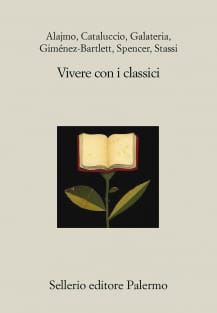Vivere con i classici

«Embalming the Greeks and Romans deprived them of their strength, that is, of their conflicting modernity» (from Luciano Canfora’s Introduction).
The conflicting modernity of the classics is the theme of this book: short stories and reflections in narrative form. Alicia Giménez-Bartlett, in an ironic Apologia, portrays a teenage girl, who repeats, “I hate the classics. The changing presence, in the seasons of life, of Ulysses, the prototype of adventure, is Francesco Cataluccio’s path. Daria Galateria illustrates the virtuous avarice that prefers the classics. Fabio Stassi imagines a science fiction scenario: an invincible species of woodworm has attacked libraries. So many write without having cut their teeth on the classics, per Roberto Alajmo: it is the prevalence of the bonghista. Scott Spencer reads Crime and Punishment without neglecting TV series, to profile the future of attraction to great books.